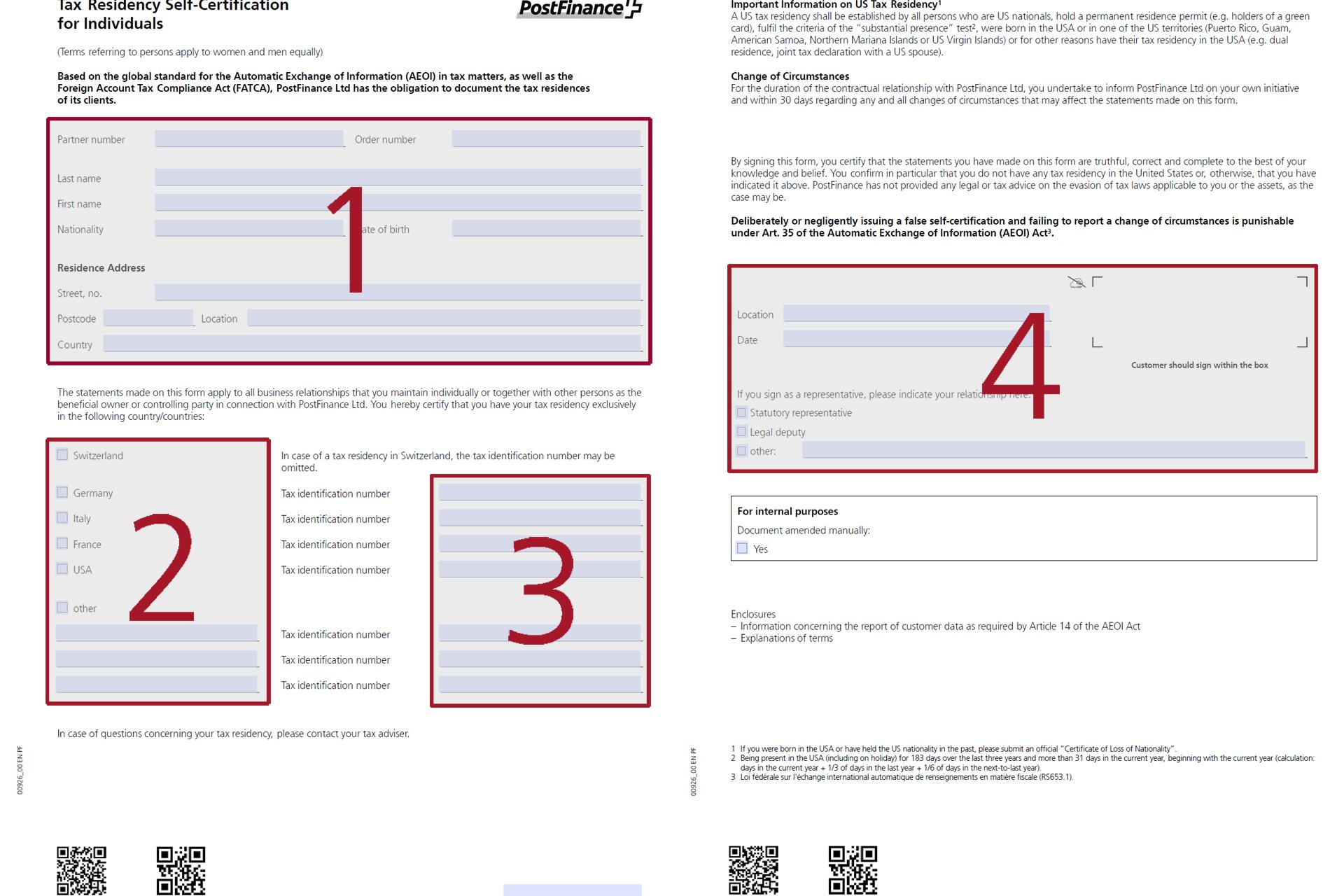Key elements of AEOI
The automatic exchange of information (AEOI) is a standard process developed by the OECD in order to prevent tax evasion. The participating countries exchange data among themselves on financial accounts and, from 1 January 2026, on crypto-assets held by taxpayers. Switzerland has undertaken to take part. Consequently, PostFinance is obliged to report details of the financial accounts and crypto-assets of customers whose residence for tax purposes is located abroad to the Federal Tax Administration (FTA) each year, provided that Switzerland has signed an AEOI agreement with the relevant partner state.


